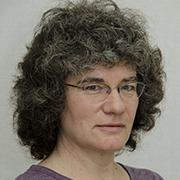במשך 17 שנים לימדתי מתמטיקה בחטיבת הביניים. עבדתי בצוות מורים ששקד על פיתוח דרכי הוראה והערכה חדשניות, המשלבות טכנולוגיה כדבר שבשגרה.
תקופה זו השפיעה ועיצבה את דרכי המחקרית. תהליכי למידה והוראה מרתקים אותי, במיוחד בסביבות טכנולוגיות.

במשך 17 שנים לימדתי מתמטיקה בחטיבת הביניים. עבדתי בצוות מורים ששקד על פיתוח דרכי הוראה והערכה חדשניות, המשלבות טכנולוגיה כדבר שבשגרה.
תקופה זו השפיעה ועיצבה את דרכי המחקרית. תהליכי למידה והוראה מרתקים אותי, במיוחד בסביבות טכנולוגיות.
A. Education:
|
1991 |
B.Sc. |
Tel Aviv University, Tel Aviv, Israel. |
|
2001 |
M.Sc. |
Feinberg Graduate School of the Weizmann Institute of Science, Rehovot, Israel. |
|
|
|
Title of Master’s Thesis: Knowledge development of a pair of students: Beginning algebra in an interactive environment Supervisors: Rina Hershkowitz and Baruch Schwarz |
|
2007 |
Ph.D. |
Feinberg Graduate School of the Weizmann Institute of Science, Rehovot, Israel. |
|
|
|
Title of Doctoral Dissertation: Learning beginning algebra in a computer intensive environment (CIE) Supervisors: Abraham Arcavi and Rina Hershkowitz |
Further studies
|
2007 – 2008 |
Post Doctoral studies, Tel Aviv University, Department of Mathematics, Science and Technology Education, School of Education |
|
2008 |
Scholar, Michigan State University, Department of Science and Mathematics Education |
B. Academic and Professional Experience:
Tel Aviv University, Constantiner School of Education
2008 – 2009 Part time teacher
2009 – 2011 Amit Horaa
2011 – 2014 Senior lecturer
2014 - 2019 Associate Professor
2019 - Pressent Full Professor
Research and Development Projects
Research Projects
2007 – 2009 Researcher, member of the leading staff of the project: Starting right: Mathematics in kindergarten, Tel Aviv University
2009 – 2010 Researcher, member of project staff: First steps in mathematics, Tel Aviv University
2009 – Present Researcher, member of the leading team in the research project: The impact of learning geometrical concepts on self-efficacy and locus of control among abused and neglected kindergarten children, Funded by the Haruv Institute (R.A.)
2010 – Present Researcher, member of the leading team in the research project: Preschool teachers’ mathematics knowledge and mathematics self efficacy needed for teaching, funded by the Israel Science Foundation
2010 – Present Researcher, member of the leading team in the research project: Modifications in the mathematical discourse of preservice teachers attending a course on functions – A commognitive perspective, funded by the Israel Science Foundation
Curriculum Development
1993 – 1995 Teacher fellow at the Science Teaching Department, Weizmann Institute of Science
1995 – 1998 Curriculum designer at the Science Teaching Department, Weizmann Institute of Science: co-author of learning materials and teacher guides for 7th, 8th and 9th grades, in the CompuMath project
2010 Designing geometrical tasks for kindergarten teachers and their students, Tel Aviv University
Teaching
Tel Aviv University-
Instructor of the courses: Research methods for science education, Research literacy in Science education, The use of technology in mathematics education, Technology for math in elementary school, Computer, Geometry and more for high school teachers, Discourse analysis in math and science class
Grants
2012 - 2016 The Israel Science Foundation (ISF) – Coordinating the development of individual and collective learning of mathematics in the classroom (With Tommy Dreyfus)
2015-2019 The Israel Science Foundation (ISF) – Knowledge shifts in the mathematics classroom: the roles of students and teachers (With Tommy Dreyfus)
2016-2019 The Trump Foundation - Development and assessment of on-site professional development of high-school mathematics teachers: Integrating technology to practice
2017-2020 The Ministry of Education - Integrating mathematical applets in the teaching sequence (With Arnon Hershkowitz, Anat Cohen, Kobi Gal)
2017-2022 The Israel Science Foundation - Collective reasoning around texts across disciplines towards deliberative democracy (With Baruch Schwarz, Anat Yarden, Boris Koichu, Einat Heid-Metzuyanim)
2020 - The Isreal Science Foundation - Learning processes in mathematics between the whole class, small groups and individual students (With Tommy Dreyfus)
2020-2024 - The Isreal Science Foundation - Technology in the service of early-algebra learning for low-achievers (With Einat Heid-Matzuyanim)
|
|

תחומי מחקר: תהליכי הוראה ולמידה של מתמטיקה בסביבות טכנולוגיות, חשבון והנדסה בגיל הקדם יסודי, תהליכי הבניית ידע בכיתה, ניתוח שיח, הכשרת מורים.
תחומי הוראה: הוראת מתמטיקה, הכשרת מורים למתמטיקה.
פרקים בספרים
[1] Williams, S. R. & Leatham, K. R. (2017). Journal quality in mathematics education. Journal for Research in Mathematics Education, 48(4), 369-396.